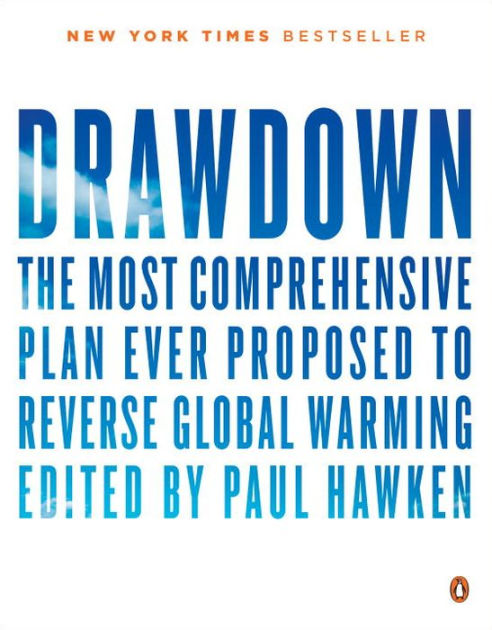Can one person draw down the apocalypse?

Drawdown is many things — an encyclopedic guide to what the Green New Deal can and should do to reduce climate change; a primer for those seeking to educate themselves on how they can encourage a greener planet; a guide to where we are now — but it is not a very good book club book. You can't really read Drawdown from beginning to end. It's meant to be read in quick bursts, or used as a resource for people who work in public policy. It's maybe the first book for the Reading Through It Book Club that I haven't read every word of, from beginning to end.
But though none of us read Drawdown from cover to cover, last night's Reading Through It Book Club had a great conversation about the environment and climate change.
It helped, of course, that we were meeting just two days after the end of perhaps the single most consequential month in the history of the environmental movement. We toasted to Greta Thunberg's astounding achievement in changing the discourse about climate change, and we discussed the similarities between her action and the Parkland kids changing the gun responsibility discourse forever with their activism.
One of the most interesting avenues of discussion had to do with the way that the book centered white men — it's edited by a man, and it features essays largely by men, and the chapter on how policies benefitting women could help the environment mostly consisted of reproductive rights, as though bearing children is the only value women possess. Thunberg has helped decentralize the conversation from a masculine frame, and so Drawdown already feels regressive, though it was only published last year.
And as with the larger conversation about climate change, members of the book club were wrestling with the idea of what it means to be environmentally conscious, and how much of the work can be done on an individual basis as compared to a systemic basis. Surely, even the single most environmentally responsible person in the world is a grain of sand compared to the most environmentally irresponsible corporation?
Can any individual action matter?
Ask Greta. Alone, one person can't do much. But if that person commits the right action, and calls on the right people to follow them, conversations can be changed and the impossible suddenly becomes inevitable.
The Reading Through It Book Club will meet next at Third Place Books Seward Park at 7 pm on Wednesday, November 6th. We'll be discussing Sarah Smarsh's excellent economic memoir Heartland. It's always free; please join us.